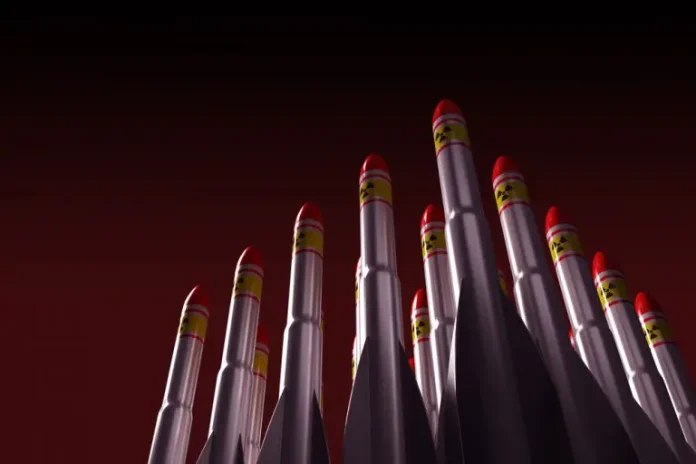Russian President Vladimir Putin’s updating of the nuclear doctrine has brought the issue of studying the nuclear documents of the United States, Moscow’s main opponent, to the forefront.
In Russia, the nuclear doctrine is part of the country’s broader military doctrine on national defence and the use of weapons. In the United States, nuclear weapons are developed under the Nuclear Posture Review (NPR), with the full version of the document classified and available only to senior officials.
The NPR was first released in 1994 during the Bill Clinton administration. The need to review nuclear armament arose after the collapse of the Soviet Union, the main adversary of the United States. Thereafter, there was no longer a need to maintain a nuclear arsenal in Europe, as the threat of another major war vanished.
Concerned about a new Cold War and the perceived threat from Russia, US policymakers insisted on preserving the country’s nuclear capabilities. Consequently, Washington expressed its willingness to continue negotiations on strategic offensive arms reductions provided that Moscow honoured its commitment to “democratic values.” Clinton’s 1997 Directive 60 also allowed for a nuclear strike against countries using weapons of mass destruction against the US and its allies.
Post-9/11 doctrine
The next NPR was released in 2002 under George W. Bush. The need to update the document was necessitated by the terrorist attacks on the US on 11 September a year earlier.
The new review did not rule out preemptive strikes as a response to an attack using weapons of mass destruction, as well as against new threats, in case deterrence failed. The document also contained a list of countries potentially dangerous to the United States, including Russia, China, Libya, Syria, as well as countries that Washington believes sponsor terrorism.
That version of the doctrine lasted until 2010. By that time, US dominance and the concept of a unipolar world had begun to be challenged by Russia and China. Then President Barack Obama released a new NPR. In his policy speeches, Obama promoted the need to abandon nuclear deterrence and move to a nuclear-free world.
Washington’s commitment not to launch nuclear strikes against countries that do not possess weapons that threaten US security was also enshrined. However, that applied only to those countries that had signed agreements on the non-proliferation of weapons of mass destruction. The US also refused to withdraw its nuclear forces from Europe, as well as plans to develop advanced nuclear weapons.
The Trump and Biden Doctrines
Another Review was released in 2018 at the behest of Donald Trump. The US emphasised the commitment to the need for the total elimination of nuclear weapons in the world. The main adversaries of the US in the new doctrine were identified as Russia and China, which allegedly built up their nuclear capabilities.
Nuclear weapons were also allowed to be used in the event of a nuclear attack on the US and its allies and in the event of a strategic attack using non-nuclear weapons and large-scale aggression.
The concept lasted only four years and was replaced by the Nuclear Posture Review promulgated in 2022 under Joe Biden. The US could now use nuclear weapons in “extreme circumstances” and also allowed for the possibility of nuclear war.
In June this year, it became known that Biden intends to update the US nuclear doctrine. The corresponding Review has not yet been published, but it will refer to the need to increase the US nuclear arsenal and the need to deter Russia, China and North Korea.
NPR and Nuclear Doctrine
In contrast to the vague wording in US documents, recent changes in Russia’s nuclear doctrine specify the grounds for the use of nuclear weapons. Notably, Russia’s response to aggression with a nuclear strike angered US lawmakers, even though the US document contained similar language.
Since the 1990s, the United States has consistently tightened its nuclear policy. Military experts noted that this triggered retaliatory measures from Russia. However, State Department head Antony Blinken recently called the adjustment of Russia’s nuclear strategy an “irresponsible” move.
Sigmund Huber for Head-Post.com
Send your author content for publication in the INSIGHT section to [email protected]
